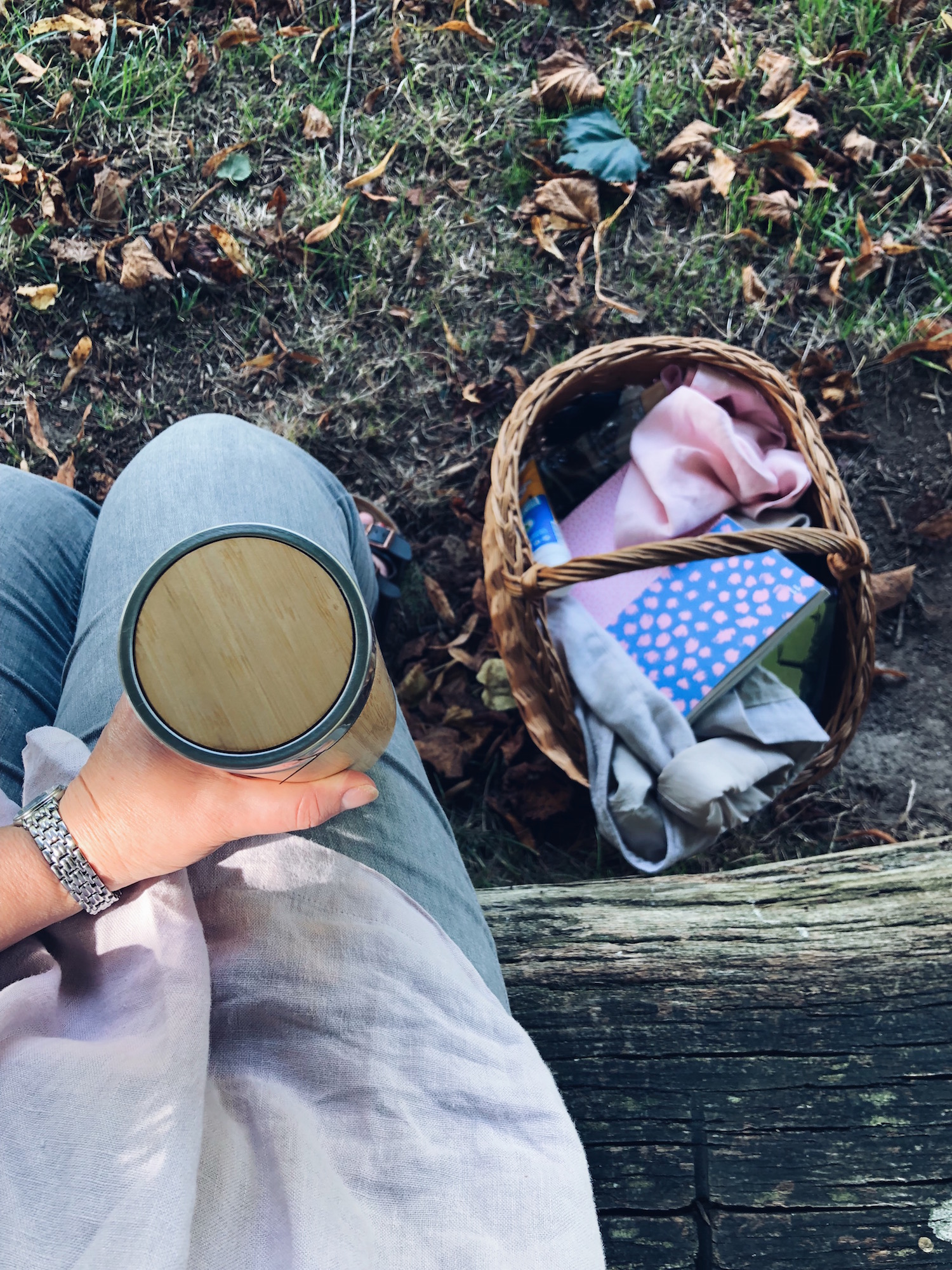Summer picnic
We spread out our blanket in the shade on the grassy flat inside the ruins of the castle. All around us, birdsong. The paper-rustle of the breeze in the trees. The occasional, distant hum of a car bracing itself to climb the hill on the other side. And centuries. The sound of centuries. The vibrations of a thousand years, deeper than human hearing but as real as that bumble-bee we saw, drunk on pollen, staggering from borage to blackberry and back again.
I take off my shoes and the grass is soft and warm beneath my toes. I want my body to touch the hum of the centuries, to see if they will touch me.
"Are you grounding, Mummy?" asks Scout. That's my girl. The children kick off their shoes, too, and race about amid the wildflowers, shooting corks at each other from toy wooden crossbows. We pick flowers to press and, when the sun gets too hot, retreat into the shade for lunch. It is simple fare, but so, so good. Baguette from our favourite boulanger in town, soft cheese, pear and apple. And because I am still not entirely French, a thermos of hot tea.
I stretch out on my stomach, kicking my bare feet in the air behind me, and read to the children aloud from Lunch Lady magazine. A story about the romance of caravanning in Australia. Scout says, "Let's stay here for the whole day," and I agree. Ralph discovers he can carry the corks for his crossbow inside the fat curls on his head.
There is a plaque set near one of the ruined towers of the castle, that tells a little of the history of this place. It is uncharacteristically poetic for a plaque, and so beautiful that I search the small-print for an attribution of some kind. I feel as though I'm reading Victor Hugo, or Walter Scott, rather than someone from the Bretagne Tourism Office, circa nineteen-eighty-something.
I'll share some of it with you.
"For over a thousand years, the mighty castle walls dominated the banks of the river and echoed to the clash of iron and the cries of warriors. Now all is quiet on the deserted peak. Nothing is to be heard but the songs of the shepherds and the birds. The old feudal giant is nothing more than a meagre skeleton and each winter carries off a fragment. Only brambles and wild flowers inhabit the gaping ruins. Corn and apples ripen the orchard that once was a place of arms. Only the dew from heaven and the labourer's sweat now water this earth which warfare once drenched in blood and tears."






